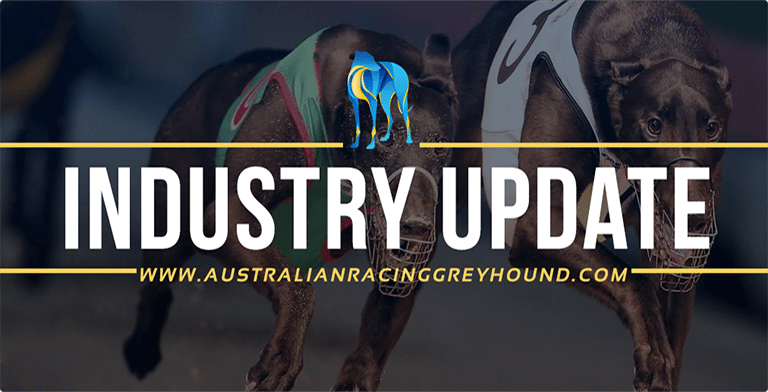Greyhound exports to America suspended pending inquiry

GREYHOUNDS Australasia has suspended supplying Greyhound Passports for Australian dogs heading to the USA amid fears they are ending up in China.
GA revealed it was concerned the United States, a regulated jurisdiction it rated as ‘close to fully compliant' in a 2014 study, is being used as a temporary destination for greyhounds before being moved on to China.
The suspension of US greyhound passports is expected to last as long as six months, pending the outcome of an internal review of the Greyhound Passport Scheme.
GA CEO Scott Parker said his organisation and its member controlling authorities, such as Greyhound Racing Victoria, take animal welfare issues very seriously.
“Regulators remain vigilant in their efforts to identify greyhounds that were registered by them but now live overseas,” Parker said.
“They actively investigate any exportation of greyhounds without a GA passport including greyhounds that are confirmed to be in an unregulated or unapproved jurisdictions such as China and Macau.”
Under Greyhounds Australasia Rule 124, passports must be issued and approved before any registered participant exports a greyhound.
GAR124 was established in 2004 and was aimed at protecting the welfare of all Australian greyhounds sent overseas. Under the new rule, participants were required to obtain a GA Greyhound Passport before meeting the export requirements under the rules of the Department of Agriculture.
The rule meant that any participant caught exporting a greyhound without applying for or being granted a passport through GA was in breach of the rules and subject to disciplinary action.
GA soon found it had limited powers to stop greyhounds being exported to countries with poor or unknown welfare standards without government support, as it was still legal under Federal law, and is to this day.
In 2005, GA began pressuring the Australian Government to intervene to stop the export of Australian greyhounds to jurisdictions where animal welfare was not regulated.
The export of greyhounds to Macau and China was banned in 2013 due to the lack of animal welfare laws in those countries.
Passport applications to all other destinations are assessed on a case by case basis and are only approved if that destination complies with GA's Required Standards to Import Australian Greyhounds.
The ban on passports being issued for greyhounds heading to Macau and China was put in place after a review found systematic and widespread animal welfare breaches.
The review delivered some shocking details, including that nearly 50 per cent of the racing stock in Macau were euthanised each year due to serious injury. It was also uncovered that greyhounds were living in tiny kennels and did not receive sufficient exercise, with no greyhounds re-homed after racing.
Despite the review being launched 2012, it was not completed and made public until 2014. At the same time as it was released, GA confirmed it had suspended new Greyhound Passports for any country which had lower standards of animal welfare than Australia, including China.
The report detailed that the United Kingdom and the Czech Republic as the only two jurisdictions which are fully compliant with GA's required standards, with exports also allowed to the US, Ireland and New Zealand which were deemed as being close to fully compliant. Vietnam did not co-operate with the review and were deemed non-compliant.
In 2015, an investigation by the ABC's 7.30 report combined with Animals Australia, found greyhounds were still being exported to Macau, China and Vietnam.
The investigation alleged 72 Australian greyhound owners and trainers were implicated in exporting dogs to Macau and China and 700 Australian greyhounds were living on site at a dilapidated track known as the Canidrome in Macau.
According to the Federal Department of Agriculture, 654 greyhounds were exported from Australia in 2014 – of which 240 were sent to Macau.
In 2016 it was reported 179 trainers had been charged with the unauthorised export of dogs to Macau following an ongoing inquiry launched by Greyhound Racing NSW (GRNSW) in December 2015.
The responses and information gathered from these participants lad to the identification of key players involved in the exportation of greyhounds. Subsequently, five industry participants were handed down charges for multiple offences relating to their involvement in the large scale exportation of greyhounds to Macau and China.
At a hearing in March 2017, Steven and Mark Farrugia pleaded guilty to 182 charges each for unauthorised exports as well as failing to obtain greyhound passports, failing to submit transfer of ownership forms, attempts to conspire to commit a breach of the rules and bringing the industry into disrepute by acting in a manner that was negligent, corrupt, fraudulent, improper or constitutes misconduct.
Meanwhile, Sam and Patricia Cauchi were each found guilty of 50 export and misconduct related charges.
GRNSW stewards are still considering submissions on penalty and undertaking further lines of inquiry.
Additionally, 19 participants have been charged for providing false and misleading information to GRNSW in relation to approximately 30 greyhounds.
Importantly, GA's regulation of the exportation of greyhounds to China and Macau is only able to control registered participants and does not impact members of the public if they wish to export a greyhound whether it be racing, retired or a pet.
In 2017, one of the key recommendations of the Greyhound Industry Reform Panel in NSW was for the Government to regulate the exportation of greyhounds from Australia so they can only be exported where the receiving country has appropriate animal welfare standards in place.
The government is yet to act, with any potential new laws sure to cause controversy amongst several other industries, such as thoroughbred racing, which currently has no restrictions on where horses can be exported to, given that in order to be non-prejudicial, the legislation would have far reaching implications beyond greyhound racing.